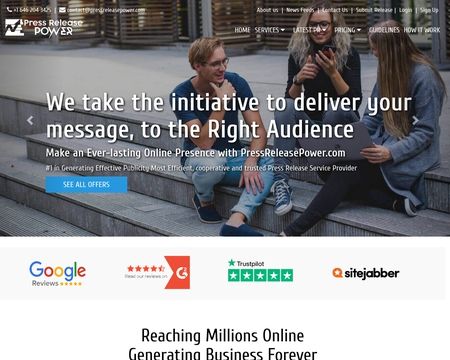In the digital landscape, creating stellar content is only half the battle. The real challenge lies in promoting that content effectively to reach and engage your target audience. Whether you’re a seasoned marketer or a newcomer, having a well-defined content promotion strategy is crucial for driving traffic, building brand awareness, and generating leads. In this blog post, we’ll explore ten content promotion strategies that have proven to be effective, complete with actionable examples to help you implement them successfully.
Strategy
Social media is a powerful tool for promoting content due to its wide reach and targeting capabilities. To maximize impact, tailor your promotion strategy to each platform’s strengths and audience preferences.
Examples
- Facebook: Share your content in relevant groups and communities where your target audience is active. Utilize Facebook Ads to boost posts and target specific demographics.
- Twitter: Tweet snippets or quotes from your content with relevant hashtags. Engage with followers and participate in trending conversations.
- LinkedIn: Post articles and updates to your company page and personal profile. Engage with industry-specific groups to share insights and link back to your content.
Implement Email Marketing Campaigns
Strategy:
Email marketing allows for personalized content delivery directly to your subscribers. Craft compelling subject lines and include strong calls-to-action to drive engagement.
Examples:
- Newsletters: Include summaries and links to your latest content in your regular newsletters. Use segmented lists to target specific audience interests.
- Automated Drip Campaigns: Create a series of automated emails that guide subscribers through related content or offers based on their interactions with your site.
Collaborate with Influencers
Strategy:
Influencers can amplify your content’s reach by leveraging their established audience. Partner with influencers who align with your brand’s values and target market.
Examples
- Guest Blog Posts: Invite influencers to write guest posts for your blog or contribute to their blogs with links back to your content.
- Social Media Takeovers: Allow influencers to take over your social media accounts for a day, sharing your content and engaging with their audience.
Optimize for Search Engines (SEO)
Strategy
Search engine optimization ensures your content ranks higher in search engine results pages (SERPs). Focus on keyword research, on-page SEO, and quality backlinks.
Examples:
- Keyword Integration: Incorporate relevant keywords naturally within your content, titles, and meta descriptions.
- Backlink Building: Reach out to authoritative sites to link back to your content, enhancing its credibility and visibility.
Use Paid Advertising
Strategy:
Paid advertising can help you reach a broader audience and drive targeted traffic to your content. Utilize various ad formats and platforms to maximize your reach.
Examples:
- Google Ads: Create search ads that appear when users search for keywords related to your content. Use display ads to retarget visitors who have previously interacted with your site.
- Social Media Ads: Run sponsored posts or stories on platforms like Instagram and Facebook to promote your content to specific audience segments.
Engage with Online Communities
Strategy:
Participating in online communities and forums allows you to share your expertise and promote your content in a non-intrusive way. Choose communities relevant to your niche.
Examples:
- Reddit: Join subreddits related to your industry and participate in discussions. Share your content where it adds value to the conversation.
- Quora: Answer questions related to your content’s topic and include links to your articles for further reading.
Utilize Content Aggregators
Strategy:
Content aggregators help distribute your content to a broader audience by curating and showcasing relevant articles. Submit your content to popular aggregators to increase visibility.
Examples:
- Medium: Republish your blog posts on Medium to reach a different audience while including links back to your original content.
- Feedly: Submit your RSS feed to Feedly and other aggregators to ensure your content is easily discoverable.
Host Webinars and Live Events
Strategy:
Webinars and live events provide an interactive platform to share your content and engage with your audience in real-time. Promote these events through various channels to maximize attendance.
Examples:
- Webinars: Host webinars on topics related to your content and promote them via email, social media, and your website. Include links to relevant resources and follow-up content.
- Live Q&A Sessions: Conduct live Q&A sessions on platforms like Instagram Live or Facebook Live, addressing audience questions and directing them to your content for more information.
Create and Share Infographics
Strategy:
Infographics present information visually and are highly shareable. Design infographics that summarize your content or present data in a visually appealing way.
Examples:
- Social Media: Share infographics on social media platforms with a call-to-action encouraging users to visit your blog for more details.
- Guest Contributions: Offer infographics as guest contributions to industry blogs or media outlets, including a link back to your content.
Repurpose Your Content
Strategy:
Repurposing content involves transforming it into different formats to reach different audiences. This strategy helps extend the life of your content and increases its reach.
Examples:
- Videos: Convert blog posts into video summaries or explainer videos for platforms like YouTube and Vimeo.
- Slide Decks: Turn key points from your articles into slide decks for presentation platforms like SlideShare.
Promoting content effectively requires a multi-faceted approach that leverages various strategies to maximize reach and engagement. By implementing these ten strategies—leveraging social media, email marketing, influencer partnerships, SEO, paid advertising, online communities, content aggregators, webinars, infographics, and content repurposing—you can drive traffic to your content, build brand awareness, and achieve your marketing goals.
Frequently Asked Questions (FAQs)
1. What is content promotion, and why is it important?
Content promotion involves strategies and tactics to increase the visibility and reach of your content to your target audience. It is crucial because even the best content can go unnoticed without proper promotion. Effective content promotion helps drive traffic, build brand awareness, and generate leads, ultimately contributing to your overall marketing success.
2. How can I determine which content promotion strategy is best for my business?
The best content promotion strategy for your business depends on various factors, including your target audience, industry, goals, and available resources. Start by understanding where your audience spends their time online and what types of content they engage with. Test different strategies, measure their effectiveness, and refine your approach based on performance data.
3. How often should I promote my content on social media?
The frequency of content promotion on social media depends on your platform and audience. Generally, it's recommended to share content multiple times a week to maintain visibility. However, be mindful of not overwhelming your followers. Use analytics tools to determine the optimal posting frequency and adjust based on engagement levels.
4. What are some best practices for email marketing campaigns?
For effective email marketing campaigns, focus on crafting compelling subject lines, personalizing your messages, and including clear calls-to-action. Segment your email lists based on subscriber interests and behavior to deliver relevant content. Monitor metrics like open rates and click-through rates to continuously improve your campaigns.
5. How can I find and collaborate with influencers?
To find influencers, look for individuals who have a strong following and engagement within your industry. Use social media platforms, influencer marketing tools, and industry networks to identify potential partners. Reach out with a clear proposal that outlines the benefits of collaboration for both parties and be prepared to negotiate terms.
6. What are some key SEO practices to improve my content's visibility?
Key SEO practices include conducting keyword research to identify relevant terms, optimizing your content with these keywords, and improving on-page elements like titles and meta descriptions. Additionally, focus on building high-quality backlinks, creating valuable and shareable content, and ensuring your website is mobile-friendly and loads quickly.
7. How do I measure the success of my content promotion efforts?
Measure the success of your content promotion efforts using key performance indicators (KPIs) such as traffic, engagement (likes, shares, comments), lead generation, and conversions. Use analytics tools like Google Analytics and social media insights to track these metrics and evaluate the effectiveness of your strategies.
8. Can I use paid advertising for content promotion on a tight budget?
Yes, paid advertising can be effective even on a tight budget. Start by targeting specific demographics or interests to maximize the efficiency of your ad spend. Use platforms like Google Ads and social media ads, which allow for flexible budget settings and detailed targeting. Monitor your campaigns closely and adjust based on performance to get the best results for your investment.
9. What types of content are best suited for repurposing?
Content that performs well or contains valuable information is ideal for repurposing. For example, blog posts with comprehensive data can be turned into infographics, videos, or slide decks. Case studies and white papers can be summarized into shorter articles or social media posts. Repurposing helps extend the life of your content and reach different audience segments.
10. How can I engage with online communities without coming across as spammy?
To engage with online communities effectively, focus on providing value and contributing to conversations rather than just promoting your content. Share insights, answer questions, and offer helpful resources. When you do share your content, ensure it is relevant to the discussion and adds value to the community.
Get in Touch
Website – https://www.webinfomatrix.com
Mobile - +91 9212306116
Whatsapp – https://call.whatsapp.com/voice/9rqVJyqSNMhpdFkKPZGYKj
Skype – shalabh.mishra
Telegram – shalabhmishra
Email - info@webinfomatrix.com

.jpg)
.jpg)






 English (US) ·
English (US) ·